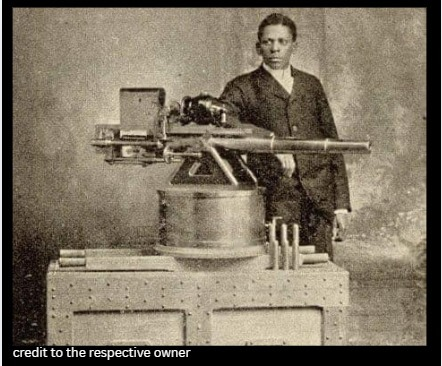In the dawn of the 20th century, Chicago was a city in motion. The streets echoed with the clatter of streetcars, the rhythmic hammering of factories, and the chatter of merchants selling everything from fresh produce to the latest mechanical gadgets. Amid this symphony of industry, a quiet figure moved with determination and vision, someone whose name history barely recalls: Eugene Burkins.
Burkins was far from a typical inventor. With little formal schooling, he had learned to read and write through sheer determination, and he supported himself by polishing shoes and taking on odd jobs around the bustling city. But beneath his humble exterior was a sharp mind, capable of seeing possibilities where others saw only limits. Inspired by the technological transformations of his era, he turned his attention to something few would dare: improving the mechanisms of large artillery.

His invention, a breech-loading cannon equipped with rollers and a vertical magazine, was designed to speed up ammunition feeding—a bold step in firearm technology that hinted at the ingenuity of later machine guns. In 1900, he secured U.S. Patent No. 649,433 for this device, a testament to his creativity and determination. Yet, despite the patent, his idea never found the industrial stage. There is little record of mass production or government contracts, and the reasons remain speculative: financial constraints, societal barriers, or perhaps discrimination could have all played a role.
But Burkins’ story is more than just the tale of an invention that never fully materialized. It is a vivid reminder that innovation does not always reside in boardrooms or universities. Sometimes, it lives in the hands of those society overlooks—the shoeshiners, the laborers, the quiet dreamers who observe the world and think, “I can do this differently.” His ambition and determination embody the spirit of countless forgotten inventors whose names may not grace history books, yet whose ideas shimmer through the past, leaving faint traces of brilliance.
History often highlights those who succeeded on grand stages, but Eugene Burkins challenges us to reconsider what it means to contribute to progress. His legacy lies not in mass-produced cannons or lucrative contracts, but in the spark of human ingenuity—proof that great ideas can emerge from the humblest of beginnings. And in that spark lies a timeless inspiration: no matter the odds, imagination and persistence can illuminate even the darkest corners of forgotten history.